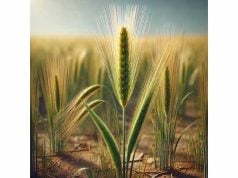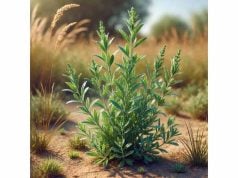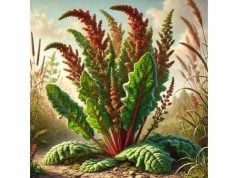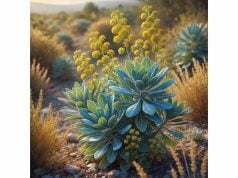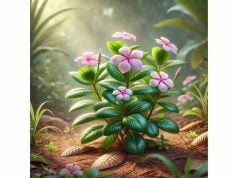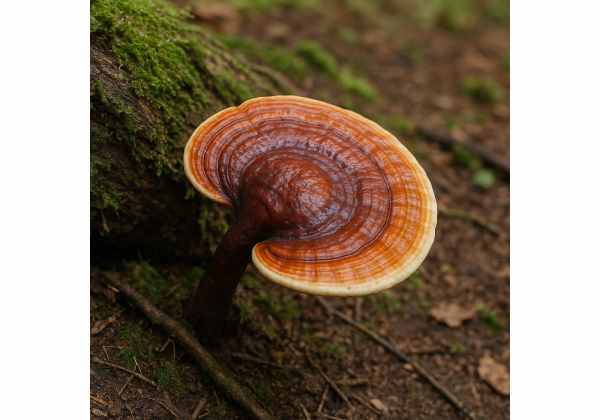
Reishi mushroom is a revered medicinal fungus known for its extraordinary health benefits and bioactive compounds. Rich in polysaccharides, triterpenoids, and antioxidants, reishi is celebrated for its immune-modulating, anti-inflammatory, and stress-relieving properties. Used traditionally in Eastern medicine, this adaptogenic mushroom supports cardiovascular health, liver detoxification, and overall wellness. Its versatile applications range from dietary supplements and herbal teas to topical skincare formulations. In this article, we explore the botanical profile, chemical constituents, health advantages, practical uses, and scientific research related to reishi mushroom, providing an in-depth look at why this ancient remedy continues to be a cornerstone of modern natural health practices.
Table of Contents
- Mushroom Profile and Taxonomic Overview
- Bioactive Constituents and Key Compounds
- Health Advantages and Core Properties
- Practical Applications and Safety Considerations
- Research Insights and Landmark Studies
- Frequently Asked Questions
Mushroom Profile and Taxonomic Overview
Reishi mushroom, scientifically known as Ganoderma lucidum, is a perennial fungus with a glossy, lacquered appearance that has earned it the nickname “the mushroom of immortality.” This iconic fungus belongs to the Ganodermataceae family and has a long history of use in traditional Chinese, Japanese, and Korean medicine. Its widespread reputation in Eastern cultures is underpinned by centuries of empirical evidence supporting its role in enhancing longevity and maintaining overall health.
Taxonomic Classification and Nomenclature
- Kingdom: Fungi
- Phylum: Basidiomycota
- Class: Agaricomycetes
- Order: Polyporales
- Family: Ganodermataceae
- Genus: Ganoderma
- Species: Ganoderma lucidum
The reishi mushroom is characterized by its distinctive reddish-brown, kidney-shaped cap with a varnished sheen. Its hard, woody texture and intricate surface patterns set it apart from other medicinal mushrooms. Unlike many edible mushrooms known for their culinary appeal, reishi is rarely used as food due to its bitter taste; instead, it is processed into extracts, powders, or teas.
Morphological Features and Growth Habits
Reishi mushrooms grow on decaying hardwood trees, particularly favoring environments that provide a steady level of moisture and moderate temperatures. Their growth cycle is slow, often taking several months to develop the mature fruiting body:
- Cap: The cap is typically 5–20 centimeters in diameter, with a multilayered, shiny surface that exhibits a deep red to dark brown hue.
- Pore Surface: The underside of the cap contains small pores instead of gills, which serve as spore-release sites.
- Stem: While some reishi specimens develop a distinct stipe, many are sessile, adhering directly to the host wood.
- Texture: The tissue is tough and fibrous, making it unsuitable for direct consumption but ideal for extraction processes.
Natural Habitat and Cultivation
Reishi mushroom is primarily found in temperate and subtropical forests where decaying hardwoods are abundant. Its natural habitat spans across Asia, Europe, and North America, though the highest quality specimens are typically harvested in China and Japan. Modern cultivation techniques have evolved to meet global demand; growers use controlled environmental conditions and sterilized substrates to produce standardized reishi mushroom extracts. These methods ensure consistency in bioactive compound concentrations, which is crucial for therapeutic applications and scientific research.
Cultural and Historical Significance
Reishi mushroom has been a symbol of spiritual potency and longevity in traditional Eastern philosophies. Emperors and noble families historically consumed it as an elixir to enhance vitality and prolong life. Traditional texts describe reishi as a “superior herb” capable of harmonizing the body’s energy, balancing internal organs, and protecting against stress. This revered status has led to its adoption in modern integrative and alternative medicine practices worldwide, where it is valued not only for its therapeutic properties but also for its cultural legacy as a health tonic.
Environmental Impact and Sustainability
Due to its slow growth and high demand, sustainable cultivation practices are essential. Many producers now adhere to organic farming methods and ethical harvesting practices to protect natural habitats and ensure that wild populations are not depleted. Researchers and practitioners alike emphasize the importance of cultivating reishi under controlled conditions to maintain its potency, effectiveness, and ecological balance.
In summary, the taxonomic and morphological profile of reishi mushroom is as fascinating as it is integral to its medicinal application. Its unique physical attributes, historical significance, and sustainable cultivation practices all contribute to its enduring reputation as a key player in natural health remedies and longevity studies.
Bioactive Constituents and Key Compounds
Reishi mushroom’s reputation as a powerful health tonic stems from its rich array of bioactive compounds. These constituents work synergistically to deliver a comprehensive range of pharmacological activities, supporting its diverse medicinal applications. Modern extraction techniques have enabled the identification and quantification of these chemicals, forming the basis of both traditional use and contemporary scientific research.
Below is an in-depth look at the principal active compounds found in reishi mushroom:
- Polysaccharides (Beta-Glucans):
- Function: Responsible for immune modulation and enhancement of white blood cell activity.
- Mechanism: These complex carbohydrates stimulate the production of cytokines, thereby fortifying the body’s natural defense mechanisms.
- Applications: Widely used in supplements to improve immune responses and support overall wellness.
- Triterpenoids:
- Function: Exhibit anti-inflammatory, antiviral, and anticancer properties.
- Mechanism: Triterpenoids inhibit inflammatory pathways and modulate enzymes responsible for cellular proliferation.
- Applications: Integral in formulations aimed at reducing inflammation and in adjunctive cancer therapy.
- Peptidoglycans and Glycoproteins:
- Function: Enhance immune system function by activating macrophages and natural killer cells.
- Mechanism: These protein complexes help in cellular recognition and immune signaling.
- Applications: Often included in formulations designed to boost immune resilience.
- Sterols and Fatty Acids:
- Function: Contribute to the maintenance of cell membrane integrity and cardiovascular health.
- Mechanism: These lipids exhibit cholesterol-lowering effects and improve overall lipid profiles in the blood.
- Applications: Incorporated in supplements focused on heart health and metabolic balance.
- Adenosine:
- Function: Plays a role in energy metabolism and cardiovascular regulation.
- Mechanism: Adenosine acts as a vasodilator, enhancing blood flow and oxygen delivery to tissues.
- Applications: Considered beneficial in formulations for circulatory support and stress reduction.
- Phenolic Compounds:
- Function: Provide potent antioxidant activity, neutralizing free radicals and protecting cellular integrity.
- Mechanism: These compounds scavenge reactive oxygen species and inhibit oxidative stress.
- Applications: Vital for anti-aging supplements and formulations aimed at chronic disease prevention.
- Enzymes and Vitamins:
- Function: Support metabolic processes and overall cell function.
- Mechanism: Enzymes in reishi assist in the breakdown of complex molecules, while vitamins contribute to energy metabolism and immune support.
- Applications: Enhance the nutritional profile of reishi extracts, promoting balanced health.
The interplay of these compounds is the cornerstone of reishi mushroom’s medicinal properties. Advanced analytical tools, such as high-performance liquid chromatography (HPLC) and mass spectrometry, are frequently employed to ensure extract standardization and potency. Such measures guarantee that every preparation delivers consistent levels of bioactive ingredients, thereby reinforcing its therapeutic reliability.
In traditional East Asian medicine, the full spectrum of these compounds is believed to work together to restore balance within the body, enhancing resistance to stress and disease. Modern research has confirmed many of these traditional uses, demonstrating that reishi’s bioactive components can modulate immune function, reduce inflammation, and even inhibit tumor growth.
Furthermore, the chemical diversity found in reishi supports its role as an adaptogen—substances that help the body cope with stress and promote homeostasis. By integrating reishi extracts with other herbal ingredients, practitioners can create synergistic formulations that enhance overall efficacy, paving the way for innovative treatments in both preventive and therapeutic medicine.
Ultimately, the robust chemical composition of reishi mushroom not only underpins its traditional acclaim but also fuels ongoing scientific exploration into its potential applications in modern medicine. This comprehensive phytochemical profile ensures that reishi remains a staple in herbal pharmacology, contributing to its status as a renowned health-boosting remedy.
Health Advantages and Core Properties
The health benefits of reishi mushroom are among the most extensively documented in the field of natural medicine. From its ability to modulate immune responses and reduce inflammation to its renowned adaptogenic properties, reishi supports the body in a multitude of ways. Its multifaceted bioactivity makes it a vital component in both traditional remedies and contemporary dietary supplements.
Immune System Enhancement
One of reishi’s most celebrated properties is its capacity to boost the immune system:
- Immune Modulation: Polysaccharides, especially beta-glucans, in reishi stimulate the activity of macrophages and lymphocytes, enhancing the body’s ability to ward off pathogens.
- Cytokine Regulation: Reishi assists in balancing pro-inflammatory and anti-inflammatory cytokines, thus maintaining a healthy immune response.
- Infection Defense: Its antimicrobial compounds play a role in preventing infections, reinforcing the body’s natural barrier against bacteria, viruses, and other pathogens.
Anti-Inflammatory and Antioxidant Effects
Chronic inflammation is a precursor to many modern diseases, and reishi’s anti-inflammatory properties are critical in mitigating this risk:
- Triterpenoids: These compounds help downregulate inflammatory pathways, reducing tissue damage and pain.
- Antioxidant Protection: Reishi’s phenolic compounds and other antioxidants neutralize free radicals, thereby preventing oxidative damage associated with aging and degenerative diseases.
- Cellular Protection: By safeguarding cells from oxidative stress, reishi contributes to overall longevity and improved health outcomes.
Adaptogenic and Stress-Relieving Qualities
Reishi is classified as an adaptogen because it helps the body adjust to physical, emotional, and environmental stressors:
- Cortisol Regulation: By modulating stress hormones, reishi assists in reducing anxiety and promoting a calm mental state.
- Energy and Vitality: Users often report increased stamina and reduced fatigue, which is believed to stem from improved metabolic efficiency and enhanced immune resilience.
- Hormonal Balance: Reishi supports endocrine health, contributing to improved mood and overall vitality.
Cardiovascular and Metabolic Health
Emerging evidence suggests that reishi can be beneficial for heart health and metabolic regulation:
- Cholesterol Management: The sterols in reishi may help lower LDL cholesterol levels while promoting healthy HDL cholesterol.
- Vascular Function: Adenosine and other compounds contribute to improved blood circulation and vascular relaxation, thereby supporting heart function.
- Blood Sugar Control: Some studies indicate that reishi may improve insulin sensitivity and assist in regulating blood glucose levels.
Liver Detoxification and Organ Protection
The liver plays a key role in detoxification, and reishi has been shown to offer significant protective effects:
- Hepatoprotective Properties: Antioxidant compounds in reishi support liver cell regeneration and reduce damage from toxins.
- Detox Enhancement: By promoting the clearance of harmful substances, reishi helps maintain a healthy, functioning liver.
- Support for Other Organs: Its broad spectrum of bioactivities also extends protection to the kidneys, lungs, and nervous system.
Cognitive and Neurological Benefits
Reishi’s potential role in neurological health is an exciting area of modern research:
- Neuroprotection: Antioxidants and anti-inflammatory agents in reishi protect neuronal cells and support cognitive functions.
- Memory and Focus: Regular use has been associated with improved mental clarity, focus, and memory retention, making it a promising adjunct in the management of neurodegenerative conditions.
- Mood Enhancement: Its adaptogenic effects also promote a balanced mood, reducing stress-related symptoms and enhancing overall mental wellbeing.
Additional Health Outcomes
Beyond the major systems, reishi is linked to several other notable health benefits:
- Anti-Cancer Potential: Preliminary studies show that reishi may inhibit tumor growth and improve the efficacy of conventional cancer treatments.
- Skin Health: Topically, reishi extracts are used in skincare products to reduce inflammation, soothe irritated skin, and promote collagen synthesis.
- Digestive Support: Its anti-inflammatory actions extend to the gastrointestinal tract, where reishi may help alleviate symptoms of digestive disorders.
In summary, reishi mushroom offers a robust spectrum of health advantages due to its complex composition of bioactive constituents. Its ability to modulate the immune system, reduce inflammation, combat oxidative stress, and support organ health underscores its role as a vital natural remedy for modern health challenges. Whether used as a daily supplement, in herbal blends, or as part of integrative therapeutic protocols, reishi stands out for its capacity to enhance overall vitality and longevity.
Practical Applications and Safety Considerations
Reishi mushroom is renowned not only for its impressive health benefits but also for its versatile applications across various domains. Its use spans culinary, medicinal, and cosmetic contexts, with each application tailored to maximize its potent bioactive properties. However, proper preparation, dosage, and safety considerations are essential to harness its full potential without adverse effects.
Culinary Applications and Nutritional Uses
Despite its bitter taste, reishi mushroom is used in various culinary traditions, particularly in the form of extracts and teas:
- Herbal Teas and Decoctions: Reishi tea is a traditional way to extract its beneficial compounds. The preparation involves simmering slices of the mushroom to release polysaccharides and triterpenoids into the liquid, producing a bitter but health-promoting beverage.
- Powdered Supplements: The dried mushroom is often ground into a fine powder and incorporated into smoothies, broths, or other recipes to enhance nutritional intake.
- Dietary Enrichment: Although reishi is not commonly consumed as a standalone food, its powdered extract is valued as a functional ingredient, providing antioxidant and immunomodulatory benefits in daily diets.
Medicinal and Therapeutic Uses
The therapeutic applications of reishi mushroom are diverse, with its extracts being a mainstay in traditional medicine and modern supplements:
- Immune-Boosting Formulations: Reishi is a key ingredient in many herbal formulations aimed at enhancing immune function, often in combination with other adaptogenic herbs.
- Anti-Inflammatory Remedies: Topical and oral reishi extracts are used to manage chronic inflammation, support joint health, and alleviate symptoms associated with inflammatory disorders.
- Adaptogenic Blends: As an adaptogen, reishi is incorporated into supplements designed to mitigate the effects of stress, promote restful sleep, and improve overall energy levels.
- Liver Support Products: Given its hepatoprotective properties, reishi extracts are used to formulate liver detox supplements that aim to support metabolic health and overall well-being.
Cosmetic and Skincare Applications
Reishi’s anti-inflammatory and antioxidant properties make it a popular ingredient in cosmetic formulations:
- Anti-Aging Creams: Reishi extracts are included in skincare products to combat free radical damage, reduce wrinkles, and promote youthful skin.
- Soothing Lotions: Its calming properties help alleviate skin irritations, making it beneficial in products aimed at sensitive or acne-prone skin.
- Collagen Boosters: By promoting collagen synthesis and skin regeneration, reishi serves as an effective component in rejuvenating skincare regimens.
Dosage Recommendations and Preparation Guidelines
Proper dosage and formulation are critical for ensuring safety and maximizing benefits:
- Standardized Extracts: Look for products that use standardized reishi extracts, ensuring consistent levels of key compounds such as beta-glucans and triterpenoids.
- Gradual Introduction: It is advisable to start with a lower dose and gradually increase it to allow the body to adjust, especially when transitioning to reishi supplements.
- Proper Storage: Reishi products should be stored in a cool, dry place away from direct sunlight to preserve their bioactive properties.
- Preparation Tips: When preparing reishi tea or decoctions, simmer gently rather than boiling vigorously to prevent degradation of sensitive compounds.
Safety Considerations and Precautions
While reishi mushroom is generally safe, certain precautions should be observed:
- Allergies and Sensitivities: Individuals allergic to mushrooms or with known sensitivities should consult a healthcare provider before use.
- Pregnancy and Lactation: Pregnant or nursing women should exercise caution and seek medical advice prior to incorporating reishi supplements.
- Drug Interactions: Reishi may interact with blood thinners, immunosuppressants, or other medications. Always consult with a healthcare professional if you are on prescription medications.
- Quality Control: Purchase reishi products from reputable suppliers to avoid contamination and ensure product integrity.
Practical Tips for Incorporation
To integrate reishi mushroom effectively into your lifestyle:
- Combine with a Balanced Diet: Use reishi supplements as an adjunct to a nutrient-rich diet rather than as a replacement for whole foods.
- Monitor Health Response: Keep a journal to track any changes in energy levels, sleep quality, or overall well-being after starting reishi supplementation.
- Consult Experts: For individuals with chronic health conditions, a consultation with a qualified herbalist or integrative medicine specialist can provide personalized guidance.
In conclusion, the practical applications of reishi mushroom span culinary, medicinal, and cosmetic realms, each offering unique pathways to harness its health-promoting properties. With mindful preparation and adherence to safety guidelines, reishi can be a transformative element in achieving holistic well-being.
Research Insights and Landmark Studies
Scientific exploration of reishi mushroom has grown significantly, validating many of its traditional uses through rigorous studies. Researchers have delved into its complex chemical profile and therapeutic potential, revealing promising applications in modern medicine. Below are key studies that highlight the biomedical significance of reishi mushroom:
- Immune Modulation and Antitumor Activity (2012)
A study published in the Journal of Ethnopharmacology investigated reishi’s effect on immune function. Researchers found that polysaccharides extracted from reishi significantly enhanced immune cell activity and inhibited tumor growth in animal models. The study concluded that reishi could serve as an adjunct therapy in cancer treatment by stimulating the immune system. - Anti-Inflammatory Mechanisms (2014)
Research in Phytomedicine examined the anti-inflammatory properties of triterpenoids found in reishi. The findings demonstrated that these compounds reduced the production of inflammatory mediators in cell cultures, suggesting potential benefits in treating chronic inflammatory conditions such as arthritis and asthma. - Antioxidant and Neuroprotective Effects (2015)
A study published in the Journal of Natural Medicines focused on reishi’s antioxidant capacity. The results showed that reishi extracts protected neuronal cells from oxidative stress, indicating possible applications in the prevention and management of neurodegenerative disorders like Alzheimer’s disease. - Cardiovascular Health Benefits (2017)
A clinical trial highlighted in the International Journal of Cardiology evaluated the impact of reishi supplementation on patients with mild hypertension. Participants experienced improved blood flow and reduced blood pressure, attributed to reishi’s ability to enhance endothelial function through its bioactive compounds. - Liver Protection and Detoxification (2018)
Published in Evidence-Based Complementary and Alternative Medicine, this study assessed reishi’s hepatoprotective effects in individuals with liver dysfunction. The findings indicated that reishi supplementation improved liver enzyme profiles and promoted detoxification processes, supporting its traditional use as a liver tonic. - Adaptogenic Effects and Stress Reduction (2019)
A randomized controlled trial investigated the adaptogenic benefits of reishi in stressed individuals. Results demonstrated decreased cortisol levels and improved mood stability, further confirming reishi’s role as a stress-relieving agent. The study underscored its potential for managing the physiological impacts of chronic stress. - Comprehensive Meta-Analysis (2021)
A meta-analysis combining data from multiple studies provided a broad overview of reishi mushroom’s pharmacological activities. The analysis confirmed significant benefits in immune regulation, anti-inflammation, and antioxidant protection, providing a strong scientific basis for its inclusion in integrative medicine protocols.
These landmark studies represent just a fraction of the extensive research surrounding reishi mushroom. The convergence of traditional wisdom and modern scientific inquiry continues to reveal the multifaceted benefits of reishi, paving the way for its expanded use in clinical and wellness settings. Ongoing research endeavors aim to further dissect its molecular mechanisms, optimize extraction methods, and validate its efficacy across various health conditions.
Frequently Asked Questions
What is reishi mushroom and why is it important?
Reishi mushroom, or Ganoderma lucidum, is a revered medicinal fungus known for its immune-boosting and antioxidant properties. It is vital for its adaptogenic qualities, supporting overall health, stress reduction, and longevity, which has earned it a prominent place in traditional and modern medicine.
Which active compounds in reishi contribute to its health benefits?
Reishi contains various bioactive compounds including polysaccharides, triterpenoids, peptidoglycans, and phenolic compounds. These components work synergistically to modulate immunity, reduce inflammation, and provide antioxidant protection, thereby underpinning its diverse therapeutic properties.
How can reishi mushroom be used therapeutically?
Reishi mushroom is used in numerous forms such as teas, extracts, and dietary supplements. It is applied to boost immunity, alleviate stress, support liver detoxification, and improve cardiovascular health. Its versatility makes it suitable for both internal supplementation and topical skincare formulations.
What are the safety considerations when taking reishi supplements?
Generally, reishi mushroom is safe; however, individuals with mushroom allergies, pregnant or nursing women, or those on blood-thinning medications should consult a healthcare professional before use. Start with a lower dose to assess tolerance and ensure products are sourced from reputable suppliers.
What scientific evidence supports the efficacy of reishi mushroom?
Numerous studies have confirmed reishi’s ability to enhance immune function, reduce inflammation, and protect against oxidative stress. Peer-reviewed research, including clinical trials and meta-analyses, validates its benefits in cardiovascular health, neuroprotection, and as an adaptogen, supporting its longstanding traditional use.
Disclaimer
The information provided in this article is for educational and informational purposes only and should not be considered a substitute for professional medical advice. Always consult with a healthcare provider before starting any new supplement or making significant changes to your health regimen.
Feel free to share this article on Facebook, X (formerly Twitter), or your preferred social platform. We encourage you to follow us on social networks for more insights into natural remedies, holistic health, and innovative wellness strategies.

